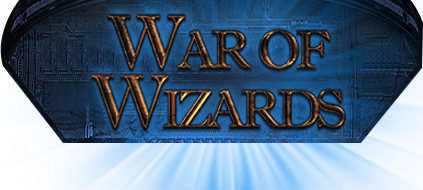3. Producing Resources
Resources are the cornerstone of the game. The more resources you have the more you can do. You gain resources by controlling shires and using the peasants in them (if they are happy enough or enslaved) to produce resources.
3.1 CONTROL
A shire is uncontrolled until a wizard issues the order to take CONTROL of a shire. To do this the wizard must have at least one unit in the shire (which must be on the ground, not Tunneling or flying and may not be a charmed wandering monster). A player will lose control of a shire if, at the end of a turn, they do not have at least one unit in the shire. This shire then reverts to uncontrolled. So be careful of leaving at least 1 unit when ordering troops to move out of a shire you control, or make sure replacement units move in during the same turn! If two or more allied wizards issue the order simultaneously one randomly selected wizard will take control and the others will back down. Once a shire is under a wizard's control the wizard may tax its peasants and use them to PRODUCE the shire's resources or BUILD in central shires. The wizard now also has the responsibility of feeding the shire's population. A wizard can feed peasants anywhere between 0 and 5 food units using the FEED command. FEED 0 will cause some peasants to starve to death and morale to drop. Feeding peasants more food will make them happier, increasing birth-rate that turn, and possibly morale, which has benefits listed later.
3.2 PEASANTS
Each shire under your control will contain a certain number of peasants. Peasants will work the land for you and allow you to make use of the shire's resources. Peasants may also be taxed and thus are a valuable source of income. Each turn, each peasant may either PRODUCE some of the shire's resources or, if they are in the player's capital city or in a central shire, they may BUILD structures. If a large battle takes place in a shire, peasants may stay inside and not PRODUCE or BUILD at all during that turn. Peasants will also pay taxes each turn. The number of gold coins paid by each peasant in a region is dependent on their morale and the tax rate.
The Gold per Peasant base rate is determined by morale, and is then multiplied by the tax rate modifier. The result of this multiplication is shown in the table below. The value is then multiplied by the number of peasants in the shire. This will be the amount of gold you will receive that turn from that shire.
| MORALE | PRODUCE OR BUILD | GOLD PER PEASANT BASE RATE |
TAX NONE = 0 |
TAX LOW = 0.5 |
TAX MEDIUM = 1 |
TAX HIGH = 1.5 |
|---|---|---|---|---|---|---|
| 0.00 - 1.00 | If Enslaved | 0 | 0 | 0 | 0 | 0 |
| 1.01 - 1.99 | Yes | 0 | 0 | 0 | 0 | 0 |
| 2.00 - 2.99 | Yes | 1 | 0 | 0.5 | 1 | 1.5 |
| 3.00 - 3.99 | Yes | 2 | 0 | 1.0 | 2 | 3 |
| 4.00 - 4.99 | Yes | 3 | 0 | 1.5 | 3 | 4.5 |
| 5.00 | Yes | 5 | 0 | 2.5 | 5 | 7.5 |
Adding all these shire tax values up for each of your controlled shires will give the amount of tax that you will receive for that turn.
The peasant morale in each shire represents how happy the peasants are with their conditions. It is always a value between 0 (rebellious) and 5 (happy). Morale will rise and fall depending on how much food each peasant receives per turn, certain buildings (WARNING: Sacrificial Altar will dramatically reduce local and global morale), the tax rate (morale increases with no tax and varies accordingly with rates low to high) and the number of people killed that turn in battles inside the shire. As shown in the above table morale affects the amount of tax collected. If morale drops to below 2 in a shire the peasants will pay no tax. If the morale drops to 1 or the peasants will rebel. You may not recruit any rebelling peasants as units. They will refuse to PRODUCE resources, be RECRUITed into armies or BUILD structures. The only way peasants with morale of 1 or lower will PRODUCE, be RECRUITed or BUILD is if the player enslaves them.
To use the ENSLAVE order the player must have 1 point of unit offence for every 5 peasants. E.g. to enslave a shire containing 100 peasants, the player would need to have 20 militia (offence 1) or 3 Storm Giants (offence 7) in the shire. Enslaved peasants will work but still pay no taxes. The peasants will revert to normal if the FREE order is issued or if the amount of unit offence drops below the required level. Enslaved units will be morale zero on being freed. Slaves require only half as much food, so only half the amount of the set feed rate will be deducted from the controller's stocks. As soon as you enslave the population the morale drops to zero, so population growth is reduced.
3.3 PRODUCTION/RESOURCES
Each shire you control will have a list of resources, listed as (Wood:4 Food:3). This represents the types of things which may be produced and how much may be produced (a value between 0 and 5). The number represents how much may be produced by a single peasant in 1 turn, in that particular shire. For example, if 20 peasants are assigned to producing wood given the above productivity ratings, then 80 units of wood would be harvested that turn. The resources of each shire will generally be related to the type of shire - a forest shire may have lots of wood, while a mountain shire may be rich in iron.
Some ships can fish the oceans. These ships will fish automatically if they are located in an OCEAN shire that the ship's owner currently controls. The ocean shire's food rating is multiplied by the ship's fishing capability value. No seasonal adjustments apply to fishing vessels.
Production of resources is carried out through the PRODUCE order. Default production is also carried out with all remaining peasants. Food or if no food is present the most abundant resource in a particular shire will be produced by default unless a default production resource is set by the player. The abbreviations for the resources found in the game are shown below.
| RESOURCE | ABBREVIATION | USE |
|---|---|---|
| Gold | GLD | Used as the lands currency. |
| Food | FOD | Used for feeding peasants and soldiers. |
| Wood | WOD | Used for making troops and buildings. |
| Stone | STN | Used for building. |
| Gems | GEM | Used in magical spells. |
| Iron | IRN | Used in making troops. |
| Mithril | MIT | Used in making superior troops. |
NOTE: Once a resource has been produced it is automatically transferred to the player's global stock and may be used in any of the player's controlled shires. This transfer happens instantly so that once production has occurred (See Order of Events), these resources may be used anywhere in the players empire. Any resources used will be deducted from this global stock of resources which will never be allowed to drop below 0 units of any particular resource.
3.4 CARAVANS
Every now and again a caravan will appear in your city. That caravan will have resources on offer for buying or selling. The caravan will stay in the city for 1 turn only so you have to buy and sell quickly. To buy and sell, see the city orders BUY and SELL.
3.5 SEASONS
As the seasons change in the game the amount of food and wood production will change. There are the four standard seasons with three turns per season. These effects only apply to land based production of food and wood. Outlined below is the effect each season has on food and wood production.
| SEASON | FOOD PRODUCTION EFFECT | WOOD PRODUCTION EFFECT |
|---|---|---|
| Summer | 10% | 10% |
| Autumn | 20% | 0% |
| Winter | -20% | -10% |
| Spring | 5% | 0% |
Winter also slows down movement (on the surface world only, including travel within ocean regions, not including flying or tunneling on the surface world) adding 1mp to the standard cost of moving.
Note that each turn report will contain a statement similar to the one below:
- The season is currently Winter and will remain so next turn.
- The season is currently Autumn and will change to Winter next turn.
The change to a new season occurs at the beginning of the next turn, so the orders that you send in should be based on the new season's production changes. Thus if your turn report contained the second message above, you should use the Winter production modifiers for your next turn, not Autumn. Each year consists of twelve months, with the new year beginning at the start of each spring.

